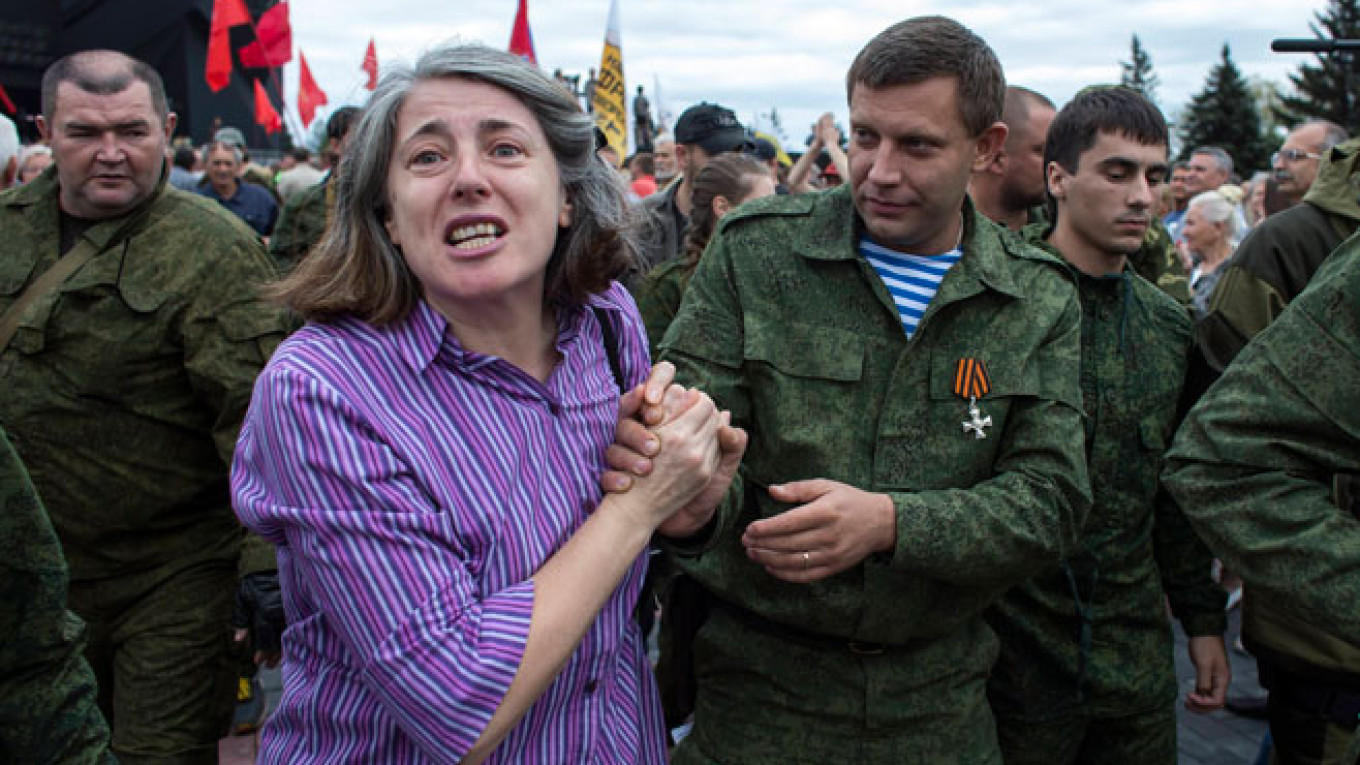Infamous former rebel commander Igor Girkin, a Russian better known by his nom de guerre "Strelkov," alienated his troops while fighting in eastern Ukraine through a ruthless disregard for the local area and unrealistically lofty goals for the battlefield, the leader of the self-proclaimed Donetsk People's Republic said in an interview published Wednesday with Russian Reporter.
"He was a person who fought alongside us. But 90 percent of his troops did not support his views on how to conduct military activities," Alexander Zakharchenko, prime minister of the rebel republic, said in the interview.
Strelkov, a former colonel for Russia's Federal Security Service shot to fame in mid-May when he began leading rebel fighters in Donetsk. He eventually took on the role of defense minister of the makeshift republic, but resigned from that position in mid-August and moved to Moscow. Upon his arrival, he declared Moscow the new front line in a battle being waged against President Vladimir Putin by the West.
Despite Strelkov's prominence as one of the top fighters in the Ukraine conflict, however, Zakharchenko implied he was generally not regarded highly by his fellow fighters.
An example of Strelkov's ruthlessness involved a plan to destroy nine-story buildings in Slovyansk, a strategy that Zakharchenko said triggered a "wild scandal."
"For me, destroying nine-story buildings on the outskirts of Donetsk is insane," Zakharchenko said, noting that Strelkov had proposed such a plan during a battle there.
In response to the interviewer's question on whether Strelkov had wanted to destroy buildings due to his own dabbling in historical military re-enactments — a hobby that many have said motivated his activities in Ukraine — Zakharchenko said Strelkov simply viewed war differently.
"In his opinion, it would have been more convenient to defend ourselves from among ruins. Because he doesn't live here," Zakharchenko said, adding that Strelkov had focused on "tactical moves aimed at strikes and fierce defense" that weren't suitable to the situation in Ukraine.
For what Strelkov wanted to do, he said, "we would have needed a minimum of 20,000 fighters. But since he only had 6,000, we had to arrange it differently."
While Strelkov's fellow fighters respected him, Zakharchenko said, "we would have done things differently when it came to trying to resolve certain issues at the expense of the lives of our fellow countrymen."
Signs of a rift between pro-Russian separatists fighting in eastern Ukraine were apparent throughout the summer, with several Russian commanders resigning. In August, documents surfaced purportedly showing orders given by Strelkov to execute his own fighters for looting, Reuters reported at the time.
Strelkov stepped down around the time reports broke of the alleged execution orders, though his representatives said he was quitting because he had found a new job.
Contact the author at a.quinn@imedia.ru
A Message from The Moscow Times:
Dear readers,
We are facing unprecedented challenges. Russia's Prosecutor General's Office has designated The Moscow Times as an "undesirable" organization, criminalizing our work and putting our staff at risk of prosecution. This follows our earlier unjust labeling as a "foreign agent."
These actions are direct attempts to silence independent journalism in Russia. The authorities claim our work "discredits the decisions of the Russian leadership." We see things differently: we strive to provide accurate, unbiased reporting on Russia.
We, the journalists of The Moscow Times, refuse to be silenced. But to continue our work, we need your help.
Your support, no matter how small, makes a world of difference. If you can, please support us monthly starting from just $2. It's quick to set up, and every contribution makes a significant impact.
By supporting The Moscow Times, you're defending open, independent journalism in the face of repression. Thank you for standing with us.
Remind me later.


